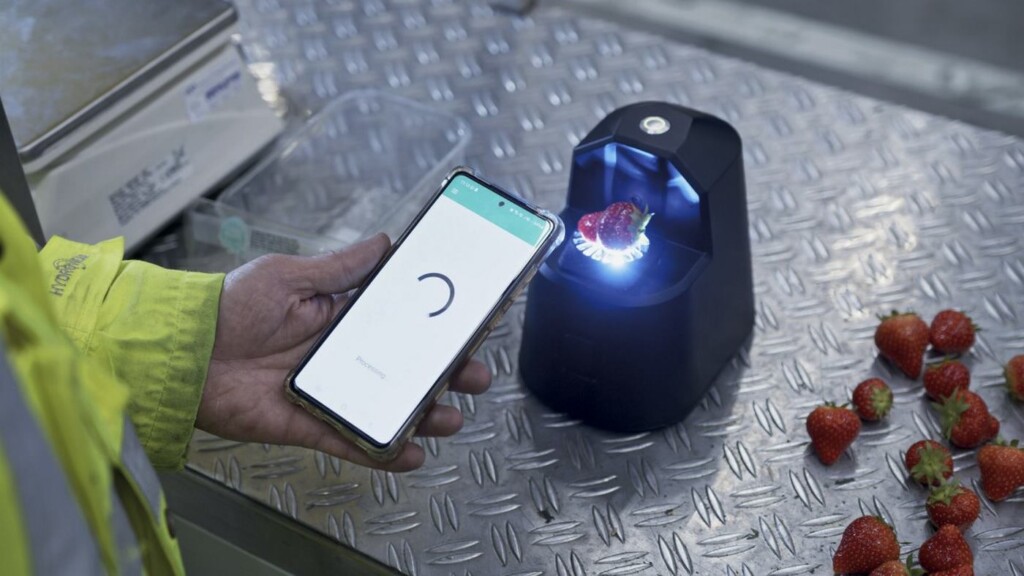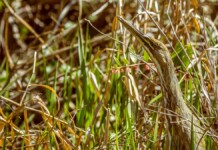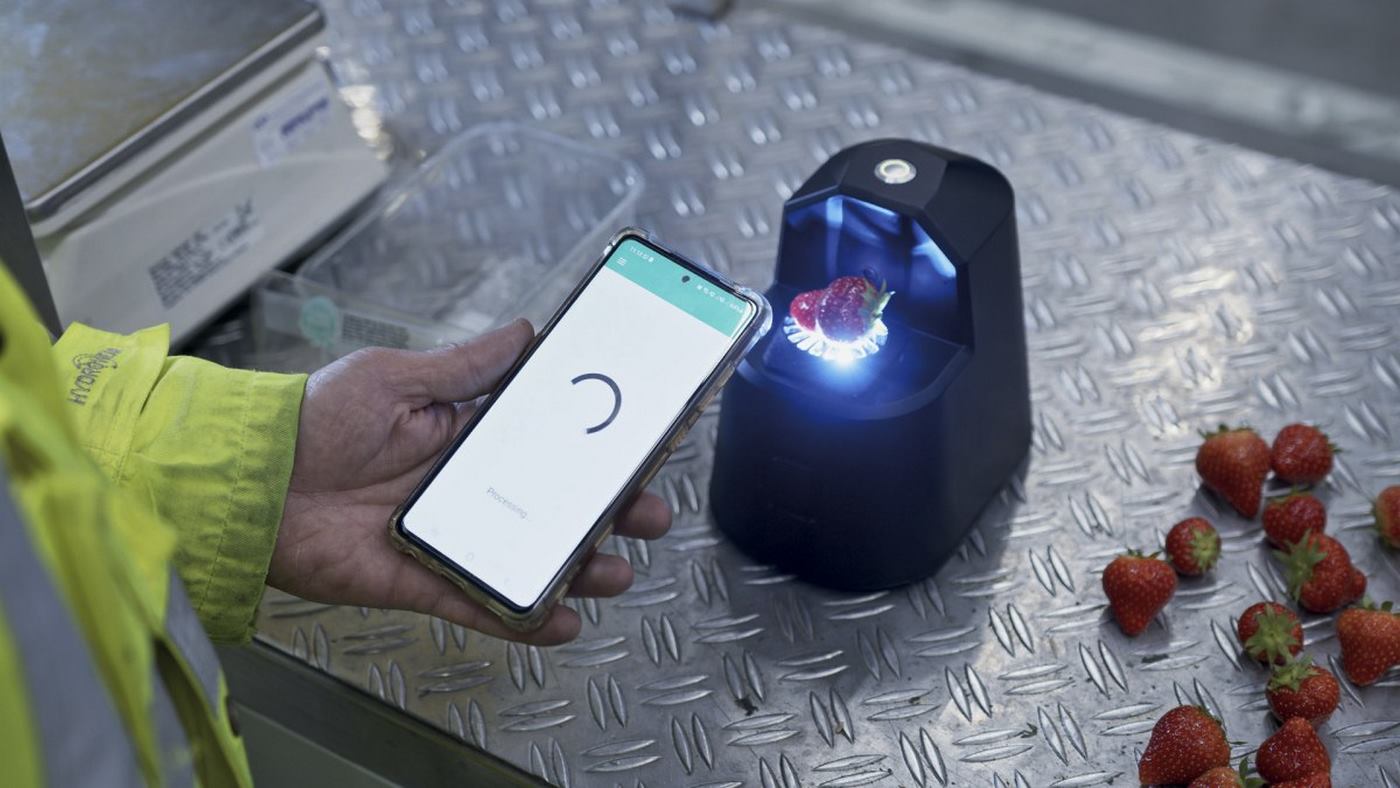
A wise balding man once said, “fruit’s a gamble,” but what if producers and retailers had a way of knowing the odds before the fruit reached the shelves in the supermarket?
A novel device by a British company that scans fruit and detects the molecular level of freshness is being made available inside supermarkets, at distribution centers, and supply-chain hubs.
By penetrating a strawberry with light, algorithms detect the configurations of water, sugars, and other compounds like ethyls and alcohols, and make a precise calculation on how many days that piece of fruit can be enjoyed. Once a determination is made, suppliers and retailers can make judgment calls about the best use for it.
The company is called OneThird, and took the name as a bit of awareness raising since one-third of food produced by humans tends to be wasted. In part this is because produce is shipped across such vast distances, and certain goods are unpredictably perishable.
With OneThird’s food scanner, the firm hopes to cut back on the loss which is a bellyache for everyone involved. Not only are there people in every country on Earth that go hungry, but just 24 hours of extra shelf life on a batch of produce can mean the difference between a million dollars in loss or a million dollars in profit when it comes to the largest grocery chains.
MORE CLEVER AG-TECH: British Company Develops First Tractor in the World to be Completely Powered by Cow Dung
Furthermore, farmers are using water, land, and fertilizer to produce it all, and produce that’s wasted gets thrown into landfills which produces unnecessary extra quantities of methane which may warm the planet over 9-year time horizons.
OneThird’s portable scanners were based on technology originally developed in the medical sector.
“I dove in and looked at the challenges in the food supply chain, which is kind of broken,” Marco Snikkers, founder and CEO of OneThird, told Fast Company Magazine. “We started to talk to people in the industry and found out that 40% of food waste is fresh produce. One of the biggest causes of waste is that nobody knows shelf life.”
Currently capable of determining the shelf life of strawberries, tomatoes, avocados, and blueberries, the company is soon to release an update to include grapes, bananas, mangoes, and raspberries.
YOU MAY ALSO LIKE: Scientists Find Methane is Actually Offsetting 30% of its Own Heating Effect on Planet
Each fruit will have its own unique molecular fingerprint as to when it’s close to rotting, and must be studied individually. Once the scanner makes a determination on the shelf life, the supplier could, for example, send a batch of tomatoes with 48 hours of good taste left to a canning company rather than be sold on the vine in a supermarket.
For workers at a grocery store, more accurate readings can inform the correct times to put fruit on discount, or more accurate best-by dates on produce. If it comes to it, the store will also know when to call the foodbank and ship off something before it goes bad.
SHARE This Truly Fantastic Idea And Piece Of Tech On Social Media…




















